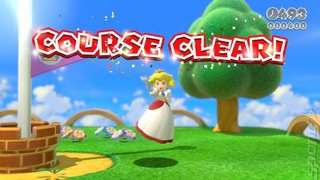Shigeru Miyamoto Discusses Gender Representation
Wii U's female heroes sparks conversation.

Shigeru Miyamoto has discussed the issue of gender representation in video games, following an E3 showcase of Wii U titles that feature a number of positive female protagonists. It's a far cry from the 'damsel in distress' theme that carries the Mario and Zelda series, a point that the Nintendo producer suggested was intentional.
Speaking of one of his first games, Donkey Kong - where Mario was tasked with rescuing Pauline - Miyamoto told Kotaku, "that was a game we first made for the arcades, the arcades were not places girls went into often. And so we didn't even consider making a character that would be playable for girls.
"But typically with the [Nintendo] DS era, what we found is, you know, gradually, more and more women began playing gamesóboth young girls and adult women, playing games like Professor Layton and Animal Crossing, so more and more ... and even as far back as Mario Kart, we had females who wanted to be able to play as female characters and we obviously saw the addition of Princess Peach early on in that series.
"And gradually, over time, we started to see the desire for other-balanced female characters. And so we've added heavier female characters in the Mario Kart series for them to choose from. So I think it's just a natural tendency [to include more positive female roles]," Miyamoto added.
At its E3 showcase, Nintendo highlighted a number of Wii U titles that featured female heroes - Super Mario 3D World, Bayonetta 2, Pikmin 3, Mario Kart 8 and the new Donkey Kong Country. He said that, should the game make sense to do so, Nintendo could go further.
"I guess, for me in particular, the structure of the gameplay always comes before the story. And so we're always looking at, when we're putting that together, what is the most natural story to take place within that structure," he said. "So, if we end up creating a gameplay structure where it makes sense for, whether it's a female to go rescue a male or a gay man to rescue a lesbian woman or a lesbian woman to rescue a gay man, we might take that approach.
"For us it's less about the story and more about the structure of the gameplay and what makes sense to be presenting to the consumer."
Speaking of one of his first games, Donkey Kong - where Mario was tasked with rescuing Pauline - Miyamoto told Kotaku, "that was a game we first made for the arcades, the arcades were not places girls went into often. And so we didn't even consider making a character that would be playable for girls.
"But typically with the [Nintendo] DS era, what we found is, you know, gradually, more and more women began playing gamesóboth young girls and adult women, playing games like Professor Layton and Animal Crossing, so more and more ... and even as far back as Mario Kart, we had females who wanted to be able to play as female characters and we obviously saw the addition of Princess Peach early on in that series.
"And gradually, over time, we started to see the desire for other-balanced female characters. And so we've added heavier female characters in the Mario Kart series for them to choose from. So I think it's just a natural tendency [to include more positive female roles]," Miyamoto added.
At its E3 showcase, Nintendo highlighted a number of Wii U titles that featured female heroes - Super Mario 3D World, Bayonetta 2, Pikmin 3, Mario Kart 8 and the new Donkey Kong Country. He said that, should the game make sense to do so, Nintendo could go further.
"I guess, for me in particular, the structure of the gameplay always comes before the story. And so we're always looking at, when we're putting that together, what is the most natural story to take place within that structure," he said. "So, if we end up creating a gameplay structure where it makes sense for, whether it's a female to go rescue a male or a gay man to rescue a lesbian woman or a lesbian woman to rescue a gay man, we might take that approach.
"For us it's less about the story and more about the structure of the gameplay and what makes sense to be presenting to the consumer."
Read More Like This
